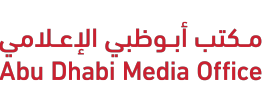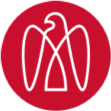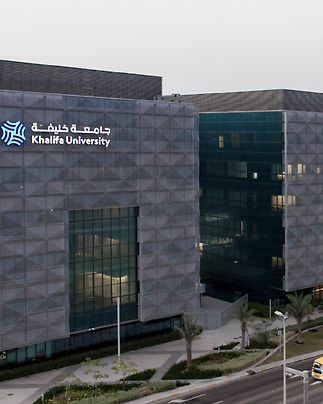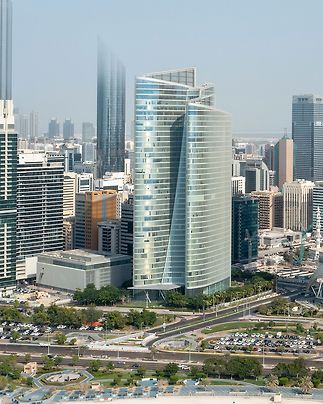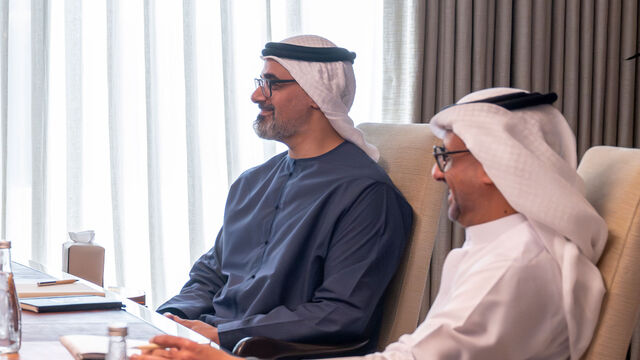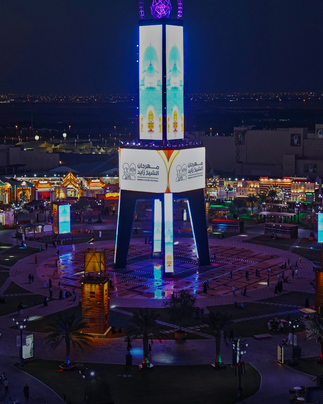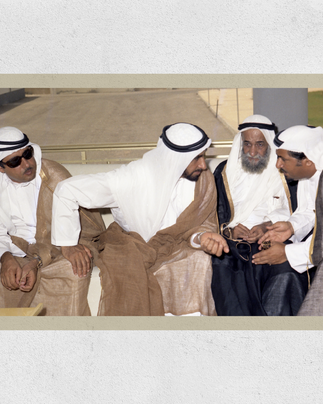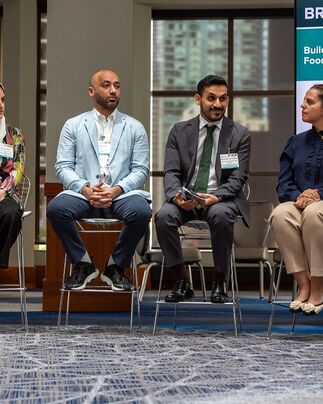ADIA Lab, the independent research institute dedicated to basic and applied research in data and computational sciences, commenced operations today, the 51st National Day of the UAE. As part of its launch, the Lab announced the composition of its Advisory Board, the details of its first academic collaborations, and launched a US$ 100,000 research award.
ADIA Lab is supported by the Abu Dhabi Investment Authority (ADIA), and operates as an independent, standalone entity with broad research goals that are not specific to investment-related applications. From its base in Abu Dhabi, UAE, the Lab explores the latest trends and technologies in data and computational science across all major fields of study.
“We have attracted a world-class Advisory Board to guide and oversee the activities of ADIA Lab, and we commence operations today with a schedule of activities that will continue to grow over the coming weeks and months,” said Dr. Horst Simon, Director of ADIA Lab.
Advisory Board
The first members of ADIA Lab’s Advisory Board were announced today. They include global thought-leaders from various data and computationally-intensive disciplines, and are responsible for advising on the development and overseeing the implementation of the Lab’s research agenda and programmes. The inaugural Advisory Board is comprised of:
- Professor Alex 'Sandy' Pentland, Toshiba Professor of Media, Arts, and Sciences at MIT, co-creator of the MIT Media Lab and founder of the MIT Connection Science and Human Dynamics Labs.
- Professor Miguel Hernan, winner of the 2022 Rousseeuw Prize for Statistics, Kolokotrones Professor of Biostatistics and Epidemiology at the Harvard Chan School of Public Health, and Director of CAUSALab.
- Professor Jack Dongarra, recipient of the 2021 ACM A.M. Turing Award, Member of the US National Academy of Engineering, Foreign Member of the Royal Society, Emeritus Professor in the Electrical Engineering and Computer Science Department at the University of Tennessee, Distinguished Research Participant at the Department of Energy’s Oak Ridge National Laboratory, Turing Fellow at the University of Manchester’s School of Mathematics, and Adjunct Professor at Rice University’s Computer Science Department.
- Dr. Edward Jung, co-founder and Chief Technology Officer of Intellectual Ventures, and a co-founder of Microsoft Research. Dr. Jung is the holder of more than 1,200 patents worldwide, spanning discoveries in biomedicine, computing, networking, energy, and material sciences.
- Professor Marcos López de Prado, Global Head – Quantitative Research & Development at ADIA, Professor of Practice at Cornell University's School of Engineering, and Professor of Practice at Khalifa University’s Department of Mathematics. Quant of the Year 2019 by The Journal of Portfolio Management, and Buy-Side Quant of the Year 2021 by Risk.net.
- Professor Alex Lipton, Global Head – Quantitative Research & Development at ADIA, Visiting Professor and Dean’s Fellow at HUJI’s School of Business Administration, Professor of Practice at Khalifa University’s Department of Mathematics, and Connection Science Fellow at MIT’s Media Lab. Quant of the Year 2000, and Buy-Side Quant of the Year 2021 by Risk.net.
- Dr. Horst Simon, twice winner of the Gordon Bell Prize (1988, 2009), Director of ADIA Lab, former Deputy Director and Chief Research Officer at Lawrence Berkeley National Laboratory, and former Director of the National Energy Research Scientific Computing Center.
Additional Advisory Board Members are expected to be appointed as ADIA Lab grows.
Academic Collaborations
In pursuit of its wide-ranging objectives, ADIA Lab explores collaborations with academic institutions, industry, and international partners. In line with this approach, ADIA Lab has reached agreements with a number of domestic and international universities to conduct a range of activities,
including joint research projects, academic programmes, internship opportunities, publications, seminars and other forms of collaborations. To date, agreements have been reached with the following organisations:
- Khalifa University of Science and Technology
- Sorbonne University Abu Dhabi
- New York University Abu Dhabi
- University of Toronto Canada
- Institut Louis Bachelier France
“One of the key drivers at ADIA Lab is our collaboration with leading academic institutions, both here in the UAE and globally, in support of the growth of Abu Dhabi as an international hub for technology and innovation,” said Dr. Simon. “We are proud to announce our first agreements today with leading domestic and international educational institutions, and we plan to expand our relationships in the coming weeks.”
Inaugural Research Award
ADIA Lab has published details of its inaugural research award, issuing a Call for Papers for the “ADIA Lab Award for Causal Research in Investments”, with a total prize of US $100,000 to be divided between authors of the top three submissions.
The Award aims to promote the use of the formal language of causal inference to express findings in the areas of finance and economics, with particular interest to investment strategies. The deadline for submissions is December 31, 2023. Further details on the Call for Papers can be found on the ADIA Lab website: www.adialab.ae/call-for-papers.
The ADIA Lab website also contains details of January’s ADIA Lab seminar series, which includes talks by Marcos Lopez de Prado (‘Causal Factor Investing’) and Alex Lipton (‘Where Does Money Come From?’). The ADIA Lab Seminar Series will continue to run year-round. The seminars are open to people with relevant experience, who can register at www.adialab.ae/news-and-events.
As ADIA Lab’s collaborations continue to expand, it expects to announce further details of its activities, which include seeking agreements with academic and other institutions globally to design educational programmes, sponsoring research projects and funding reproducible research, offering fellowships and internships, hosting seminars, and running competitions and Best Paper Awards.
“At ADIA Lab, we conduct science of the highest quality, encourage multidisciplinary collaboration, and solve large-scale and complex problems through a team science approach,” said Dr. Simon. “To accomplish these goals, we seek far-reaching collaborations with academic institutions, industry, and international partners and scientists. Our doors are open, and now we’re excited to explore new collaborations and play a role in Abu Dhabi’s growing and vibrant ecosystem.”
